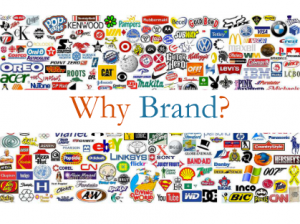Using WordPress to Craft Your Personal Brand
I gave a brief talk at March’s joint WordPress DC and Hacks/Hackers DC MeetUp on leveraging WordPress to craft your personal brand. Below are slides and a recording of the livestream.
I invite you to watch, but in short, the main takeaways were

- In the olden days, people used to be scared to put personal information online; they felt the need to be pseudonymous (see handles like @SparklePrincess87); life online was distinct from life offline.
- As more of our analog lives became digital, the need for a second identity diminished; we no longer represent ourselves with anonymous screen names, but rather as ourselves.
- Social networking and mobile computing contributed to this shift by interfacing the online and offline worlds. Today’s radical transparency (for example, lifecasters posting pictures of their lunch) shows we have come a full 180.
- We shift from corporate brand associations in the ’50s (for example, “I work for IBM”) to personal brands today (for example, “I’m an independent contractor”).
- Today we all have a unique opportunity to plant a flag on our corner of the internet, take control of our online identity, and declare to the world who we are by crafting a thought-out narrative.
- Unlike in the real world where you are the only one in control of what you say, online, content has a life of its own — you must be proactive.
- WordPress makes it dumb simple to tell the world your story.
My five big steps to launching your brand
- Grab a domain
- Define your personal brand
- Start a blog
- Socialize your content
- Upgrade your résumé
Recording of the livestream
Greg Linch opens by discussing WordPress and Journalism, I begin at 30 minutes 10 seconds
For those interested in the plugins mentioned
- Resume Plugin for WordPress
- Emphasis Plugin for WordPress
- All in One SEO
- Google Analytics for WordPress
- Simple Facebook Connect
- Simple Twitter Connect
- Subscribe to Comments
- Syntax Highlighter Evolved
Additional Resources
A special thanks to everyone who was able to come out or follow along on the livestream.
Comments? I’d love to hear your thoughts below.
Ben Balter is the Director of Hubber Enablement within the Office of the COO at GitHub, the world’s largest software development platform, ensuring all Hubbers can do their best (remote) work. Previously, he served as the Director of Technical Business Operations, and as Chief of Staff for Security, he managed the office of the Chief Security Officer, improving overall business effectiveness of the Security organization through portfolio management, strategy, planning, culture, and values. As a Staff Technical Program manager for Enterprise and Compliance, Ben managed GitHub’s on-premises and SaaS enterprise offerings, and as the Senior Product Manager overseeing the platform’s Trust and Safety efforts, Ben shipped more than 500 features in support of community management, privacy, compliance, content moderation, product security, platform health, and open source workflows to ensure the GitHub community and platform remained safe, secure, and welcoming for all software developers. Before joining GitHub’s Product team, Ben served as GitHub’s Government Evangelist, leading the efforts to encourage more than 2,000 government organizations across 75 countries to adopt open source philosophies for code, data, and policy development. More about the author →
This page is open source. Please help improve it.
Edit